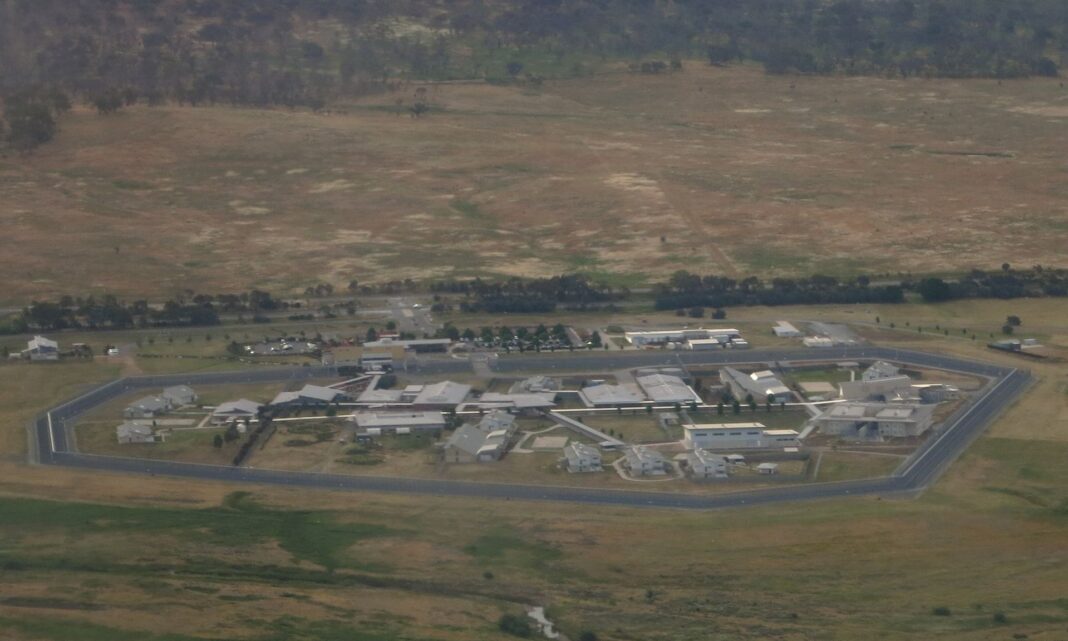The treatment of an Indigenous woman at the Alexander Maconochie Centre earlier this year violated human rights laws, the ACT Inspector of Correctional Services has found, but the woman was not, as alleged, strip-searched in front of men.
The report, tabled in the Legislative Assembly on Thursday, recommends that mandatory strip searching of detainees end in the Crisis Support Unit, and that the ACT Corrective Services procure body scanners – something the ACT Government said they will fast track immediately.
In January, Corrections Officers tried to strip-search an Aboriginal woman detainee in the presence of at least two male staff, and heard by nearby male detainees. After a physical struggle lasting minutes, she was strip-searched in a bathroom by two women officers.
“The experience of this detainee being held down by officers in Tactical PPE to have clothes removed or cut off was undoubtedly degrading and humiliating,” wrote the Inspector, Neil McAllister.
The woman had threatened to harm herself by ripping out her pacemaker after she was not given permission to attend her grandmother’s funeral for Sorry Business. Mental health staff determined that for her own safety, she should be put in the Crisis Support Unit. Staff suspected that she might have concealed a razor, and that entering the CSU, a sterile area, required mandatory strip searching.
In a letter to Mick Gentleman, Minister for Corrections, and to media, the woman said officers and nurses entered her cell to strip her naked, intending to cut off her clothes.
“Here I ask you to remember that I am a rape victim. So you can only imagine the horror, the screams, the degrading feeling, the absolute fear and shame [I] was experiencing,” the woman wrote.
Mr Gentleman declared the strip search a “critical incident” and called for an investigation.
The Inspector’s report found that conducting a strip search was lawful, but trying to remove her clothes by force was inconsistent with the Human Rights Act 2004, under which a public authority must consider human rights when making any decision.
“There is no doubt that the use of force would have been a highly traumatic incident for Detainee A, particularly given her recent history of sexual assault, her ongoing mental health condition, and the feelings of loss and grief experienced from the sudden death of her Grandmother,” Mr McAllister wrote.
The report did not suggest staff were wilfully negligent. ACT Corrective Services policies and procedures do not explicitly require staff to consider the impact of a forced strip search on a detainee’s human rights.
The report recommended that human rights be considered before planned forced strip searches, particularly “the impact the highly intrusive procedure would have on a detainee in light of any vulnerabilities such as medical conditions or trauma histories”.
Mr Gentleman said the government was likely to agree to all nine of the Inspector’s recommendations.
The government had been procuring a full body scanner for the AMC; in light of the recommendation, it would purchase two.
“Strip searches can be stressful and traumatising for both detainees and staff, and as a result we would like to minimise strip searching as much as possible,” Mr Gentleman said.
“Through the procurement of these body scanners, we’re moving towards a future where strip searches are only necessary in a small number of cases and as a last resort.”
Allegations of systemic racism
The woman detainee claimed “there is a very large degree of racism, disorderly conduct, and a wide range of breaches of Human Rights – most importantly, the outrageous, institutional abuse of Indigenous detainees – and lack of support from the [Indigenous Liaison Officers] out of fear of retribution”.
Later that month, on behalf of the Indigenous community, the Canberra Liberals called for an independent, external review into institutional and systemic racism at the AMC. Aboriginal advocate Julie Tongs OAM, CEO of the Winnunga Nimmityjah Aboriginal Health and Community Service, called the prison “a bloodbath”.
In addition to the strip-searching allegations, an Indigenous man – victim of a bashing that left him in a coma for a week – died of a drug overdose in 2016; Aboriginal inmates have been assaulted, and relatives were not notified; and staff have played ‘Hangman’ with the names of Aboriginal prisoners.
The allegations about systemic racism were outside the scope of the Inspector’s inquiry.
Dr Emma Campbell, CEO of the ACT Council of Social Service, said the report was more evidence a Royal Commission or similar commission was needed to inquire into Aboriginal and Torres Strait Islander people’s experiences in the ACT justice system – particularly since Indigenous women were twice as likely to be strip-searched as other women.



